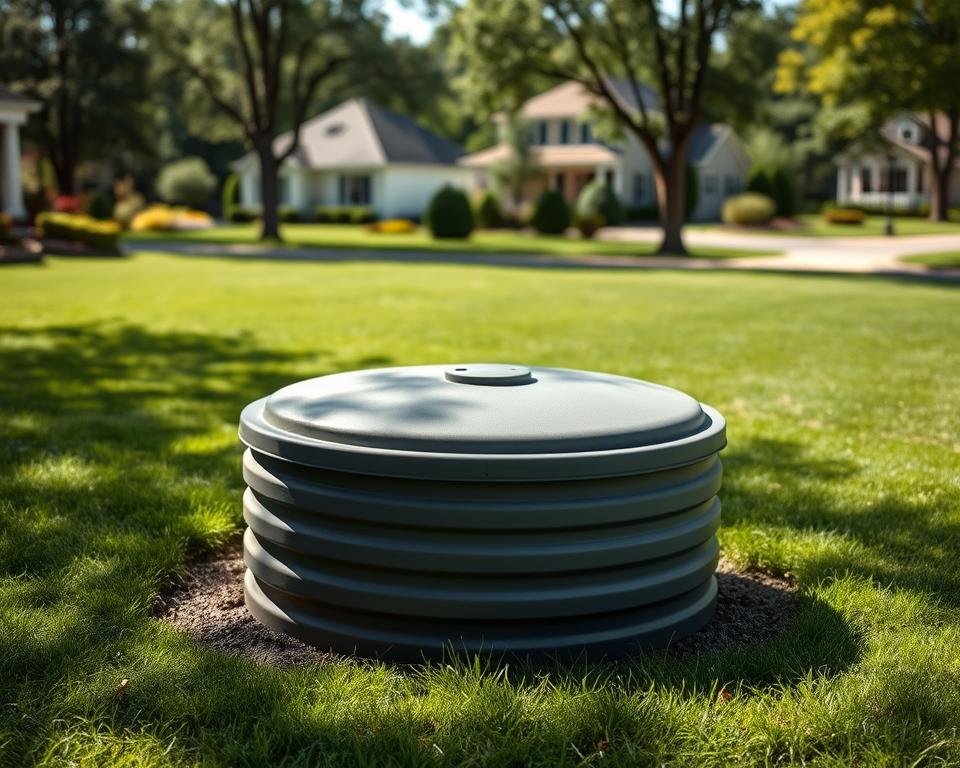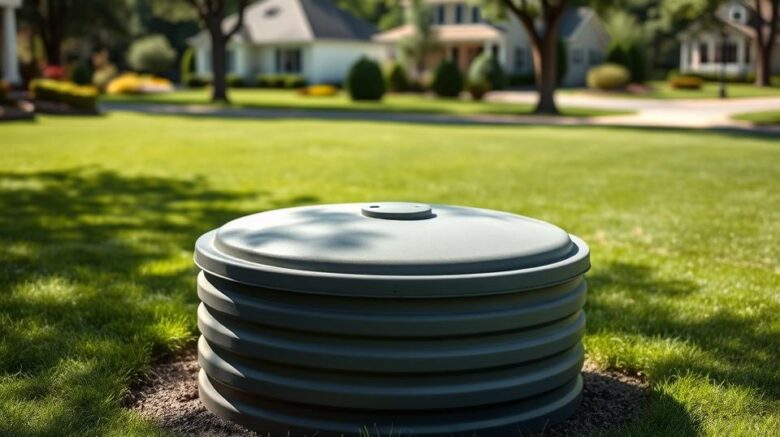Septic Tank Pump Out Procedure: Must-Know Advice & Guidance
Have you considered just where your waste ends up after it exits your sink or WC? It’s managed by a carefully serviced septic system. Comprehending the significance of septic tank pump-outs is indispensable for optimal waste management within your residence. Overlooking this could lead to backups and expensive fixes. Our guide aims to highlight the necessity of septic maintenance and scheduled pump outs. By utilizing dependable septic services – septic service near me, you safeguard your home, natural surroundings, and promote your system’s long life.
Core Takeaways
- Consistent septic tank pump out avoids system failures and backups.
- Grasping your septic system supports efficient maintenance.
- Planning a pump out is essential for effective waste management.
- Stay alert to indicators that suggest your septic tank is due for service.
- Opting for a certified service provider can boost system efficiency.
- Booking septic tank cleaning services safeguards your home and the environment.
Why Septic Tank Pump Out Matters
Booking a septic tank pumping service on a schedule is key for your system’s durability and performance. With time, your tank fills with solid waste and organic debris, and this can cause performance issues or even total system failure. Without septic system maintenance, you could face clogged pipes and damaged drain fields – problems that often come with steep expenses and significant inconveniences for homeowners.
By letting professional septic tank services perform scheduled maintenance, you make sure your system runs smoothly. This step not only avoids pricey overhauls but also safeguards the soil and groundwater around your home from pollution. When you opt for regular pump outs, you foster environmental health and enjoy a steadfast and effective system for managing waste.
Septic System Basics
A conventional septic system is central in handling household wastewater. It’s composed of the septic tank, drainfield, and soil – parts that cooperate to properly process waste. The septic tank serves as a contained space for solid waste to break down biologically.
It’s essential for homeowners to know how these sections work. Maintaining the septic system in good condition is critical to its longevity and effectiveness. Through routine inspections and cleaning the septic tank when necessary, owners can dodge expensive breakdowns that could result in serious health and environmental issues.
Consistently servicing your septic system protects your property and promotes public health. Below, find a table showing the different septic system components and their functions:
| Component | Function |
|---|---|
| Septic Tank | Holds and digests solid waste through anaerobic bacteria. |
| Drainfield | Releases the treated effluent into the soil for further filtration. |
| Soil | Acts as a natural filtration layer to further treat wastewater. |
Appreciating these elements highlights the need for diligent septic system care. Effective operation requires regular maintenance and cleanings by homeowners.
How Often Should You Schedule a Pump Out?
Learning when to get your septic tank pumped is crucial for its wellbeing. Generally, a septic pump out should occur every three to five years. However, a variety of factors might adjust this schedule.
The household size in your home heavily influences the pumping frequency. Extra residents mean more wastewater, creating a need for more frequent maintenance. Moreover, habits like frequent washing or prolonged showers might demand quicker pump outs. Taking early actions can notably improve your septic system’s life.
It’s wise to consider specific elements, such as tank size and daily water use, to keep a proper schedule. Tracking your last pump out date helps with timely planning for the next one, guaranteeing uninterrupted system performance.
Indicators It’s Time to Pump
Homeowners should be vigilant for symptoms that signal their septic tank needs pumping. Delayed sinks and toilets often indicate an overloaded septic system, reducing the wastewater flow. Moreover, bad smells around your home could mean trouble; they may come from the tank, showing system failure.
Visible wastewater pooling in the yard is another significant indicator. If your lawn has soggy areas or unexplained puddles, it’s likely your septic system is struggling. Dismissing these signs can develop into more critical issues that disturb your home and become costly to resolve.
To avoid serious complications, proactive maintenance is crucial. Hiring a professional service like All in Sanitation can be a wise decision. They can accurately diagnose and rectify these signs. This approach not only handles immediate issues but also maintains your system’s efficiency and health.

Selecting a Pump Out Provider
It’s essential to pick a competent septic tank pumping service to maintain your system operating well. Trustworthy companies know the local regulations in depth, making sure your septic system complies with all requirements. A reliable service, like All in Sanitation, is committed to disposing of waste in an eco-friendly manner. This is important for the environment’s well-being.
In seeking the right septic service, weigh these key factors:
- Experience and Reputation: Look for companies with excellent feedback and proven success in your region.
- Licensing and Insurance: Check that your preferred provider possesses the necessary license and insurance to cover unexpected problems.
- Comprehensive Services: Select a service that bundles inspections with pumping, detecting issues before they escalate.
Putting money into a high-calibre septic tank pumping service avoids expensive future repairs. Regular evaluations and ongoing upkeep keep your system in excellent form. Making the right choice not only protects your investment but also sustains a effective waste management system for your home.
Septic Tank Cleaning: What You Need to Know
For homeowners, septic tank cleaning is necessary to keep the system runs efficiently. During this process, eliminating sludge and scum is key to stop blockages. A cleaned system not only functions better but also lasts longer. Conducting regular cleanings is important for the health of your system.
Many homeowners add extra services to boost septic tank care. These services are beneficial for destroying harmful bacteria and preventing residue build-up. Understanding the necessity of proper maintenance can spare you costly overhauls. Keeping up with maintenance ensures both environmental safety and household well-being.
What Pumping Services Cost
Homeowners should understand septic tank pumping costs for smooth system maintenance. Prices vary greatly due to area, tank size, and selected service provider. Typically, this service costs between $200 and $600. It’s wise to compare quotes from various companies, considering both expertise and reliability.
Service providers like All in Sanitation provide affordable rates. Yet, the cost of septic tank cleaning reflects service quality and thoroughness. Homeowners should balance these aspects thoughtfully when choosing a service.
Comparing quotes enables sound decisions that fit your budget and septic system needs. Grasping potential costs assists in financial planning for septic tank upkeep.
Homeowner Maintenance Tips
Maintaining your septic system correctly is vital. It guarantees a robust and efficient setup. By implementing easy steps, the longevity of your septic tank extends, while also saving money. Practices like reducing water consumption in your household are highly beneficial. Addressing leaks promptly and installing water-saving appliances are wise moves.
It’s essential to refrain from flushing harmful substances down the drain. Chemicals, fats, or any materials that don’t break down easily damage your septic system. For the wellbeing of your setup, discard such waste properly. This practice preserves your septic tank’s natural processes.
Periodic inspections and the timely pumping are essential for septic maintenance. Try to have your system reviewed and serviced every three to five years. A maintenance schedule or checklist can be very useful. It helps owners in monitoring their system’s condition and adhering to maintenance guidelines.
Taking initiative with septic maintenance brings financial and environmental gains. When you practice these habits, homeowners boost their septic systems’ efficiency and dependability. This dedication not only protects your system but also contributes to a healthier environment.
As a Final Point
A septic tank pump out is essential for septic tank upkeep, and property owners should consider it earnestly. It wards off expensive repairs and extends the system’s lifespan, guaranteeing efficient operation for years to come. Knowing when to address system distress signals safeguards your property.
Selecting a proven provider, like All in Sanitation, is a game-changer in septic tank care. Their expertise ensures proper service, supporting both environmental health and your home’s comfort. Preventive care secures your investment and promotes a greener planet.
Being knowledgeable about your septic system and its maintenance needs is crucial. Routine pump outs improve home functionality and bolster public health. For any homeowner, realizing the value of septic tank care guarantees a efficient living environment for the future.
